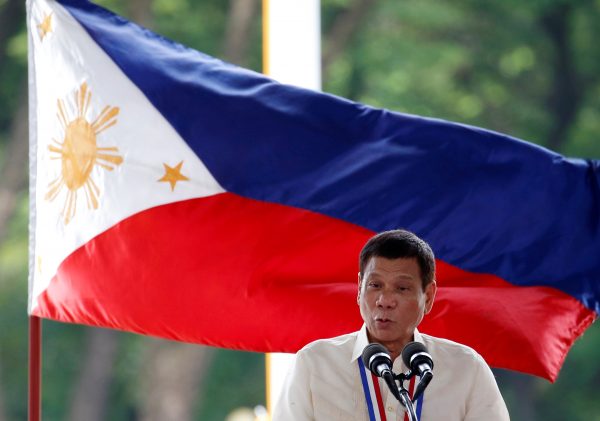But the proposed constitutional revision to shift from unitary to federal government has remained a steady background issue.
Hardly a day goes by when there are not ‘federalism 101’ dialogues discussing its pros and cons. The Philippine Congress is currently busy passing the 2017 budget but as 2016 comes to a close they will be turning their attention to constitutional change.
This is all due to the convictions of one man: President Rodrigo Duterte. Advocacy for federalism has its centre of gravity in the Mindanao region. From the perspective of a Davao — the region’s largest city — Manila is overbearing. In Mindanao, federalism is seen as a way of satisfying the aspirations of its local Muslim population by adding to the powers that have already been devolved to the Autonomous Region in Muslim Mindanao.
Federalism was discussed briefly in the Constitutional Commission that drafted the 1987 Constitution, but was rejected due to fears of fragmentation. As part of the post-dictatorship thrust towards democracy, a degree of decentralisation was instituted under the 1991 Local Government Code, which introduced local-level responsibility for health, environment, social services and agriculture. Some have argued that local governments have not fulfilled these mandates. Others have suggested that insufficient power and funds were devolved in 1991. By the end of the decade, arguments were being made that federalism was the next step in bringing democracy to communities throughout the country.
In 2005, then president Gloria Macapagal-Arroyo convened another Constitutional Commission and appointed Jose Abueva as chair, a leading federalism advocate. But the Commission’s recommendations did not include federalism. Instead it recommended an indefinitely long process of instituting ‘autonomy’ in different areas. Opposition from the Commission’s members and elected provincial politicians stymied the move. Following this the focus of the debate shifted to instituting a parliamentary system of governance rather than the current presidential form — this may have been a maneuver to secure another term for Macapagal-Arroyo who was the president at the time.
Advocates of a shift to federalism often pair it with a desire to change to a parliamentary form of government. But this is unpopular with the average citizen. Surveys have repeatedly found that Filipinos want to vote for their leaders instead of having members of the legislature decide who heads the executive branch. Surveys also show that while there is little knowledge about federalism among the population, people generally favour greater autonomy of regions and localities.
This vague endorsement by citizens is unsurprising given that even their elected leaders seem uncertain on the topic. In an interview, Duterte argued for a federal parliamentary system, similar to that seen in Singapore and Malaysia. But he also added that the Philippines could look into adopting the model used by the United States. Singapore, as an island-state, is not federal. The US is federal but also presidential. And while it is true that Malaysia has a parliamentary government with federalism, it is described as centralised. As the national legislature begins to consider ways to amend the constitution — possibly after another round of recommendations — Duterte’s direction of change is not at all clear.
This lack of purpose can be seen throughout much of Duterte’s administration. It is perhaps best to describe the President as a populist, whose ‘thin-centred ideology’ does not provide detailed answers. His economic team announced early a standard ten-point program to accellerate growth, but also put leftists in charge of the labour and agrarian reforms. In terms of the environment, Duterte was sufficiently taken by the passion and reasoning of an anti-mining activist to name her head of the department. But he then hired a pro-mining colleague as her undersecretary in charge of the Mining and Geosciences Bureau.
One of the main motivations for federalism, at least in Mindanao, is the belief that it will help meet the legitimate demands of Muslims in the Philippines. But Duterte has failed to convey any clear future direction for the issue, sometimes saying that passing the failed Bangsamoro Basic Law would be a template for federalism and sometimes saying that federalism would solve demands for a better rule by Philippine Muslims of their own affairs.
All this activity begs the question of whether federalism is a good idea for the Philippines. It is a complex process with many doubters. A shift to parliamentary governance would leave the Philippines in uncharted territory — political scientist Gene Pilapil points out that this has never happened in any country during peacetime. President Duterte has repeatedly stated that the Philippines is at war with crime, so he certainly believes drastic measures are necessary.
Steven Rood is the Asia Foundation’s Country Representative for the Philippines and Regional Advisor for Local Governance.
This article is a summary of a presentation delivered at this year’s Philippines Update Conference at the Australian National University.

